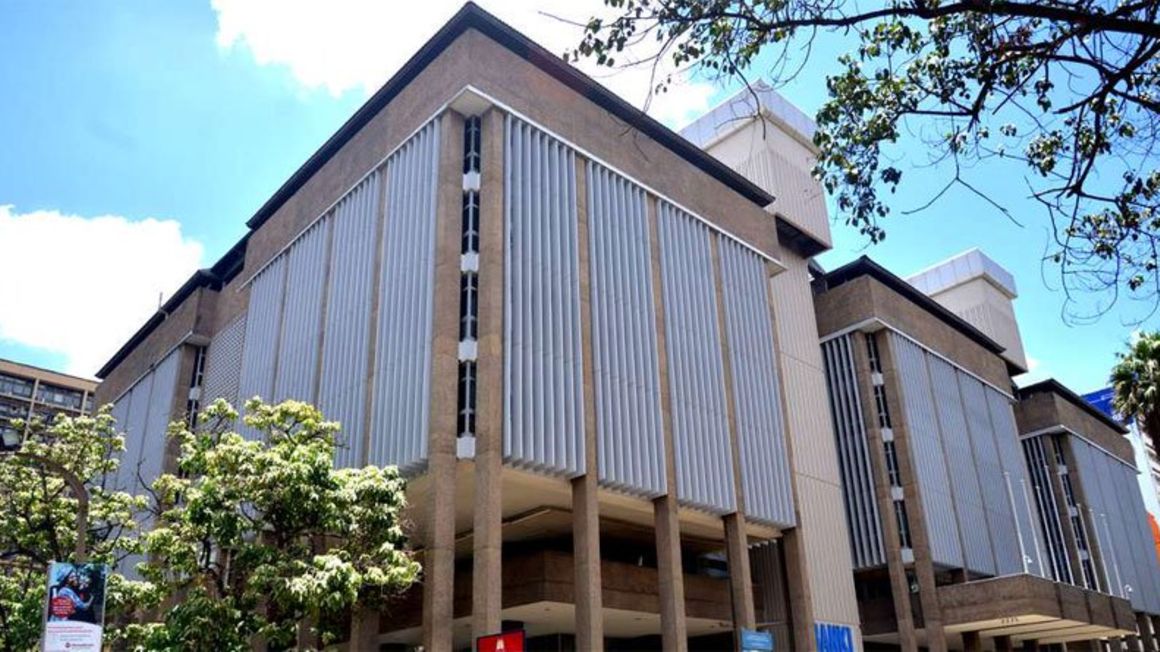Central Bank of Kenya. FILE PHOTO | NMG Wealthy Kenyans and companies banked Sh1.03 billion daily in fixed bank deposits last month in search of safety for their investments amid the gradual recovery of the economy from Covid-19 hardships.
Central Bank of Kenya (CBK) data shows that fixed bank deposits held by Kenyans hit a historic high of Sh1.598 trillion in July, up from Sh1.567 trillion in June, marking one of the biggest monthly jumps.
The Sh30.85 billion cash increase in fixed accounts, equivalent to Sh1.03 billion daily, is an indication that rich individuals and big companies are protecting their value rather than seeking new areas to invest their fortunes.
A slowdown in business activities and the uncertain future caused by the effects of the pandemic have forced many companies and investors to hold onto cash, leading to a pile-up in bank accounts.
Uncertainty at the stock market and a slump in real estate have also seen the rich opt to keep cash in banks and tap interest returns, which stood at an average of 6.37 percent in June.
Chief Economist at Mentoria Economics Ken Gichinga says the investment environment remains fragile amid concerns about the spread of new Covid-19 variants. The mounting cash in fixed deposits comes amid fears that the highly contagious Covid-19 Delta variant may spark the fourth wave of infections in Kenya.
The US and the United Kingdom have tightened restrictions on travel to Kenya by their nationals due to the spread of the variants. “This (rise in fixed deposits) talks of limited options for investors. It also means they see the interest rates offered on their money as high enough to beat the returns in the current real economy, said Mr Gichinga.
“Investors are not spending as much as they should to support growth in real economy and this is a worry. The high return on government paper worsens the situation further.”
A July CBK survey found that many companies expected moderate to weak economic growth due to a slow vaccine rollout, subdued activities in sectors such as hospitality and a possible return of containment measures that could dent economic recovery.
The survey showed 54 percent of non-bank private firms drawn from sectors such as agriculture, real estate and manufacturing expected moderate economic activity while a quarter saw weak prospects.
“Across all sectors, reduced consumer demand and increased taxation were identified, among others, as significant factors that could constrain expansion/growth of private sector firms […]
